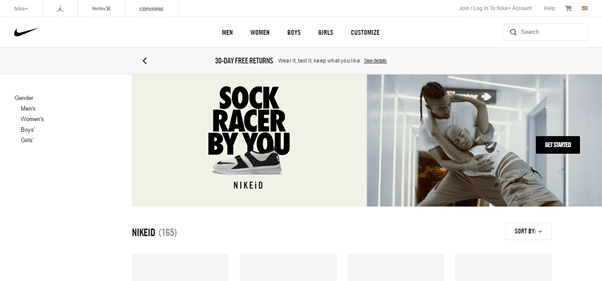As Internet, social media and smartphones usage increase, there is a need for marketers to find new and more effective ways to engage consumers. One of the latest trends in marketing right now that helps consumers engage effectively is personalised marketing.
Marketers know the importance of the target market. They seek to know their customers on all levels and they do this by segmenting the market according to demographic, geographic, and psychographic audience segments.
Extensive research is performed to understand a target market’s buying behaviours. Including where, how, and when consumers buy the wares they need.
When you have a clear understanding of your audience you can influence their buying decisions. That is the power of personalised marketing.
The rise of the Internet and social media helped businesses improve their ability to track customers buying patterns. Furthermore, they can then analyse consumer buying behaviours to personalise their marketing strategies.
However, it is not enough to know the details of your target market. Your content marketing now needs to go beyond generic advertisements and content intended to universally appeal to the selected target audience.
The Importance of Personalised Marketing
The essence of personalised marketing is being able to reach consumers on an individual level. Connecting to consumers in this way builds trust and loyalty to the brand.
What does personalised marketing look like?
Personalised marketing is relevant to both online and offline marketing. However, the technologies available online make it that much more powerful.
Personalised Emails
One of the most powerful ways you can use personalisation is through email. Personalised emails have six times the conversion rate of generic emails. This is one of the forms in which personalised marketing can appear.
A good example of a successful personalised email marketing campaign is Amazon. Amazon invested a lot of time in research and development, so they could develop their own personalised approach to their emails based on factors such as general market segmentation information along with past purchases, behaviour of customers on-site and how much they spend on the site.
As a result, Amazon can now send customers personalised emails based on how long they’ve been a customer and their past activity on the website.
Amazon has a set of email templates for everything such as their welcome email, receipts, shipping and more. Every possible interaction is personalised, and the information becomes more succinct as additional user data is collected.
Personalised Products
Personalised marketing can also come in the form of products that are tailored to the individual customer. Having that element of a personal touch is attractive to consumers. According to Deloitte around 36 per cent of consumers are interested or attracted to personalised products or services.
Nike took advantage of consumer’s interest in having customisable products by introducing NikeID. They originally released it on their website and after gaining traction resulting from a website revamp they released an iPhone app that allowed customers to find NikeID stores near them. The app even allows customers to purchase their customised shoe online.

Another good example of how marketers used information on consumer’s wants and interests is Coke’s “share a coke” campaign, where they sold coke bottles with a specific name on the bottle.
This is a great example of product personalisation as a marketing strategy as well as utilising mobile apps. This is important because statistics show that personalised marketing works well for mobile apps, with social media as the most effective use of personalised marketing.
Personalisation on Social Media
As mentioned above, social media is a platform where personalised marketing is largely being utilised and where it is working most effectively. Ad blockers usage grows 43 per cent per year. With that in mind, personalised marketing is where marketers should look if they want to attract consumers.
An example of personalisation on social media includes Facebook newsfeed ads that are personalised to each individual user. Have you ever watched a video on Facebook, and then seen all of the related videos appear in your newsfeed. That is personalisation in action.
Pinterest also does this. When a user likes a specific photo or ‘pins’ it, more products similar to that will appear in their feed. There is also an interactive shopping feature on the app that allows users to create a personalised shopping experience from things that they like on Pinterest.
Final Thoughts
Personalised marketing is an increasing trend for marketers and businesses seeking to promote products and services. An increasing number of online platforms have successfully been using this strategy to create attractive customer experiences.
It should be clear by now that traditional marketing strategies are not enough to keep up in an ever-increasingly digitised world. Instead, the future of marketing lies in personalised marketing for target audiences.
If you want to keep up with this trend to find the targeted customers your business needs to thrive then schedule a free appointment with us at Shout. As a web marketing company we can help you personalise your marketing based on your individual needs.

